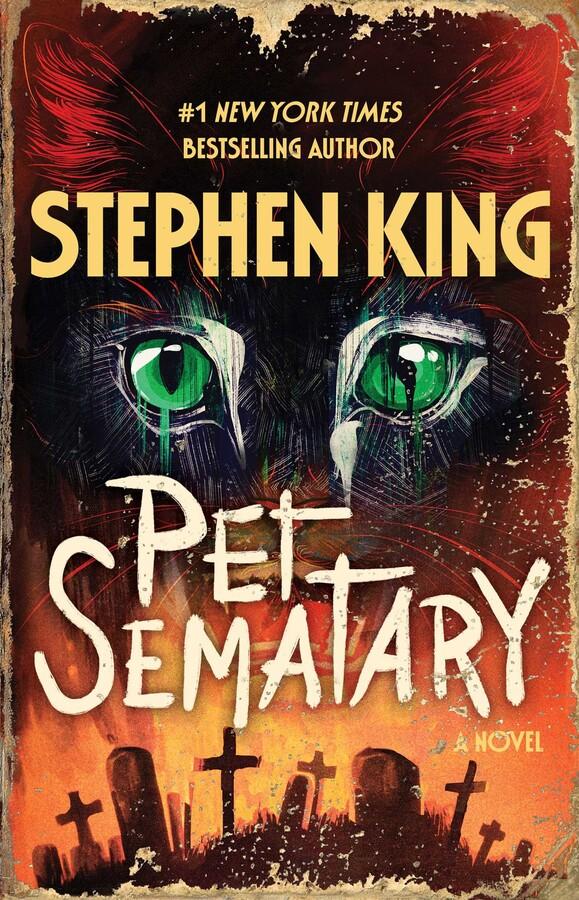Stephen King, a name synonymous with modern horror and suspense, has been a prolific force in the literary world for decades. With over 60 novels, numerous short stories, and countless adaptations, his works have captivated audiences worldwide. However, the question arises: Is King’s remarkable success rooted more in the sheer volume of his output than in the quality of his storytelling? This article delves into the intricate balance between quantity and quality in Stephen King’s career, examining how his extensive body of work has contributed to his enduring influence and popularity. By analyzing critical reception, reader engagement, and the impact of his stories across various media, we aim to uncover whether King’s legacy is defined by the breadth of his creations or the depth of his narrative artistry.
Analyzing the Volume of Stephen Kings Literary Output
Stephen King has undoubtedly carved a niche as one of the most prolific authors in contemporary literature. His literary output is nothing short of staggering, with over 60 novels and 200 short stories to his name. This sheer volume of work raises an intriguing question: does the magnitude of his catalog contribute more significantly to his success than the quality of each individual piece?
- Consistency: King’s ability to maintain a steady output of books, often publishing at least one novel per year, keeps him consistently in the public eye, ensuring that his name remains relevant across generations.
- Diverse Genres: By spanning genres from horror to fantasy to crime fiction, King appeals to a wide audience, allowing his extensive bibliography to reach varied reader preferences.
- Brand Recognition: The sheer number of titles under his belt has contributed to a strong brand presence, where the name “Stephen King” itself becomes synonymous with compelling storytelling.
While some critics argue that the vast number of works might dilute the overall quality, King’s dedicated fanbase often points to the consistent thematic depth and character development found across his novels as a testament to his skill. It appears that King’s success is a harmonious blend of both quantity and quality, each aspect amplifying the other in his literary legacy.

Evaluating the Critical Reception of Stephen Kings Works
Stephen King, often hailed as the “King of Horror,” has penned over 60 novels and countless short stories, a feat that few authors achieve in a lifetime. While his prodigious output is undeniable, it raises the question of whether his success stems more from sheer volume rather than the caliber of his work. Critics and fans alike have long debated this, examining both the strengths and weaknesses of his extensive bibliography.
Strengths of King’s Work:
- Character Development: King’s ability to craft complex, relatable characters has earned him acclaim. His characters often grapple with profound psychological and emotional challenges, making them resonate with readers.
- Atmospheric Settings: From the eerie town of Derry to the Overlook Hotel, King’s settings are meticulously detailed, adding depth and immersion to his narratives.
- Genre Innovation: King has consistently pushed the boundaries of horror, blending it with elements of science fiction, fantasy, and psychological thriller.
Criticisms of King’s Work:
- Pacing Issues: Some critics argue that King’s penchant for lengthy narratives sometimes leads to pacing problems, with certain sections feeling overly drawn out.
- Formulaic Elements: Over the years, certain themes and motifs have become repetitive, leading some to suggest a formulaic approach to his storytelling.
- Quality Variability: With such a vast body of work, the quality can be inconsistent, with some novels receiving more critical acclaim than others.
Ultimately, the debate surrounding King’s success involves a nuanced consideration of both his prolific output and the undeniable impact of his most celebrated works.
Comparing Commercial Success with Literary Acclaim in Kings Career
When dissecting Stephen King’s remarkable journey, one must consider the dual nature of his achievements: commercial success and literary acclaim. Commercial success is undoubtedly a hallmark of King’s career, with numerous bestsellers, adaptations into films and TV series, and a dedicated fan base. However, this financial triumph often sparks debate about whether it’s primarily driven by the sheer volume of his work rather than its literary merit.
On the other hand, King’s literary acclaim cannot be overlooked. While some critics argue that his prolific output may sometimes overshadow the depth of individual works, others praise his ability to craft compelling narratives and develop complex characters. Key factors contributing to his literary success include:
- Mastery of suspense and horror: His unique ability to evoke fear and tension.
- Rich character development: Multi-dimensional characters that resonate with readers.
- Cultural impact: Stories that reflect societal anxieties and personal fears.
Ultimately, the balance between commercial triumph and literary respect is a testament to King’s enduring influence in the literary world. Whether his success leans more towards quantity or quality remains a nuanced topic, inviting ongoing discussion among fans and critics alike.

Balancing Quantity and Quality: Recommendations for Aspiring Writers
For aspiring writers looking to strike a balance between quantity and quality, it’s essential to recognize the unique strengths each approach can bring to your craft. Quantity, often associated with prolific authors like Stephen King, allows writers to explore diverse ideas, themes, and styles. By producing a high volume of work, you can hone your skills, experiment with different narratives, and increase your chances of finding an audience. However, this approach demands discipline and a robust work ethic to maintain consistency and avoid burnout.
On the other hand, focusing on quality involves dedicating time to deep research, meticulous editing, and thoughtful storytelling. This approach may result in fewer works but can lead to more profound, impactful writing that resonates with readers. For those inclined towards quality, it’s important to cultivate patience and resilience, understanding that crafting a masterpiece takes time. Consider incorporating these strategies into your writing practice:
- Set realistic goals for both writing volume and depth of research.
- Establish a routine that allows time for both writing and revising.
- Seek feedback regularly to refine your craft.
- Experiment with different genres or styles to discover your strengths.
Ultimately, the path you choose should align with your personal writing aspirations and the stories you wish to tell. Both quantity and quality have their merits, and finding a balance that works for you can lead to a fulfilling writing journey.
